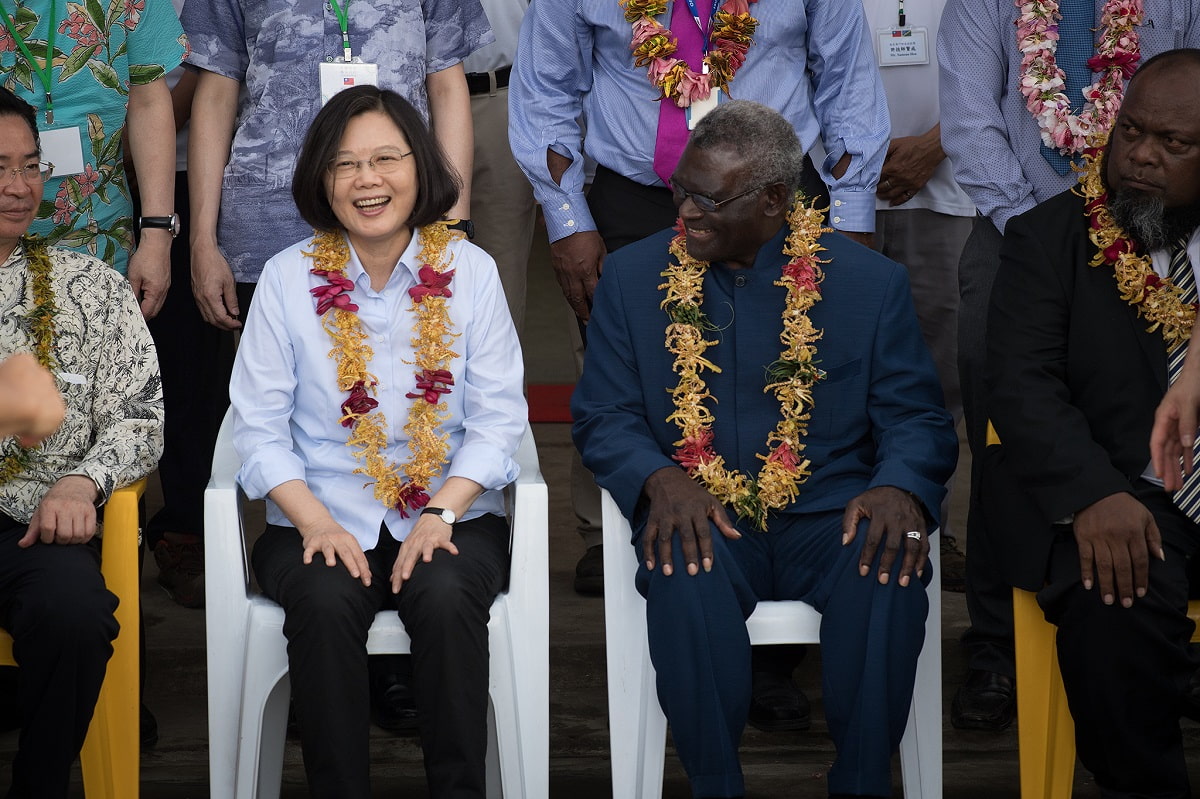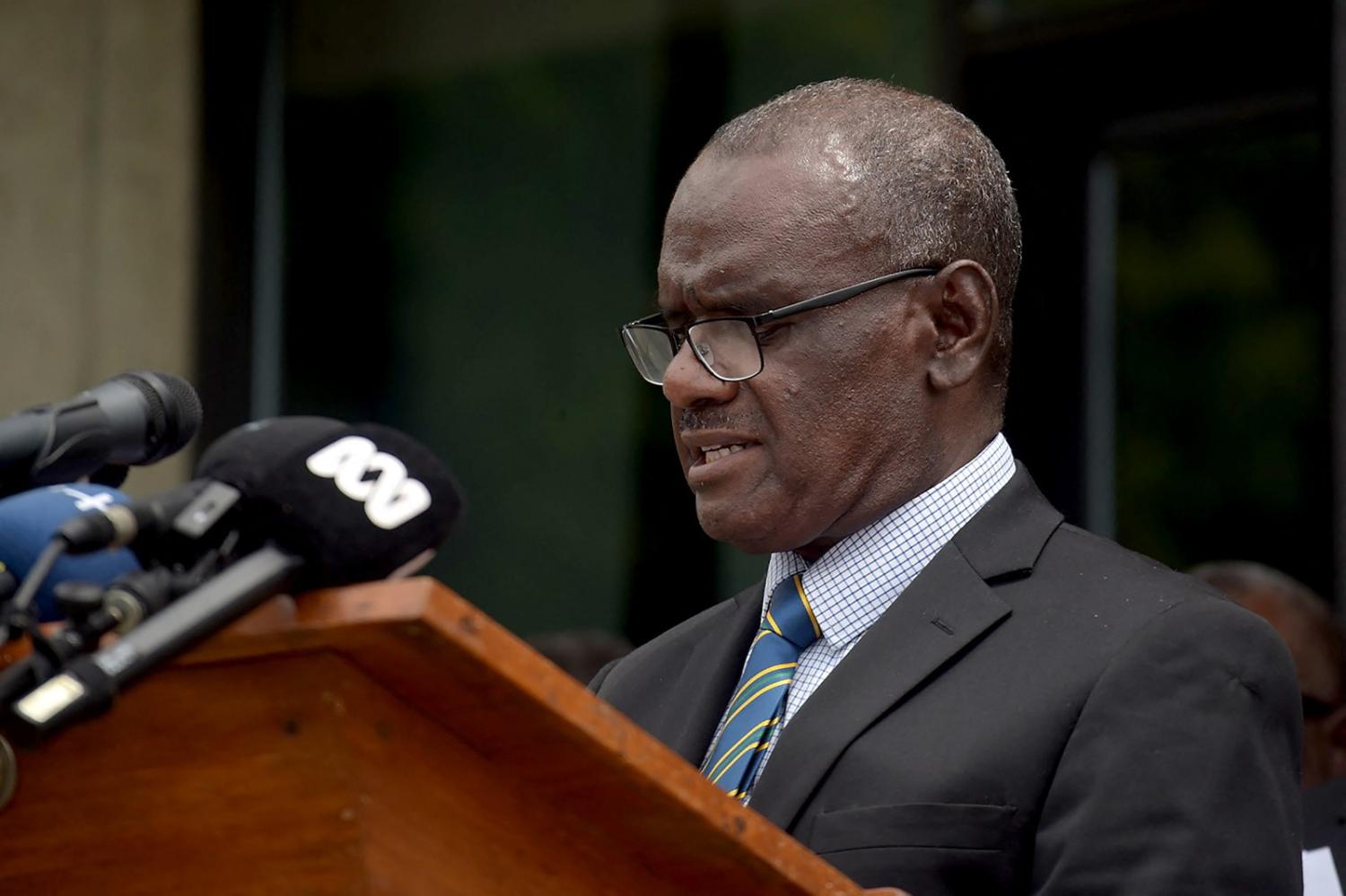“Leading a nation is never an easy task,” said Jeremiah Manele while standing on the steps of Solomon Islands’ National Parliament, moments after he was elected prime minister.
The otherwise peaceful national election on 17 April delivered the brutal realisation that a second consecutive government lead by Manasseh Sogavare would be a difficult pill for the Solomon Islands community to swallow after five years of divisive identity politics.
Cue mild-mannered Manele, who rose from loyal lieutenant to be Sogavare’s front man when the former prime minister stepped aside earlier in the week ahead of the PM vote.
A sensible move, given the incumbent Ownership, Unity and Responsibility (OUR) Party’s drubbing in the national election, where they lost more than half of their seats.
As much as international attention will fixate on what the new leadership may mean for Solomon Islands’ relations with China, the United States and Australia, Manele’s first task, after picking his cabinet team, will be to deliver an economic plan for his country.
After the euphoria of the Pacific Games wore off, the people of Solomon Islands were left with a resplendent national stadium that they could trudge past on their way to eke out a living in Honiara’s brutally scarce jobs market.
Voters didn’t reject Sogavare’s close relationship with Beijing, as much as opposition figures such as Matthew Wale and Peter Kenilorea sought to capitalise on geopolitical tensions. They rejected an underperforming government, and mostly, individual underperforming MPs.
While failing to win a majority and install themselves as leaders, the opposition did manage to galvanise more organised political contestation across the country – a shift away from “every person for themselves” to more assertive political mobilisation from parties.
But what does this mean for China?
As prime minister, Sogavare was central to accommodating China’s increasing strategic reach into the Pacific. China had been knocking on Solomon Islands’ door for years, as it had on those of other Pacific countries, but Sogavare was the one who opened it. Wide.
The few short years since Solomon Islands switched diplomatic recognition from Taipei to Beijing, a decision driven by Sogavare, has seen a rapid expansion of Chinese access into Solomon Islands’ security sector, strategic infrastructure such as ports and telecommunications, and a local media environment saturated with Chinese official media narratives.

But Sogavare’s personal brand of wolf warrior diplomacy drew a lot of heat and served to inflame tensions both at home and abroad. A leader with a softer touch, who is still receptive to offers of Chinese “assistance”, may actually work in China’s favour and let some of its more disruptive activities fly under the international community’s radar.
If opposition figures such as Kenilorea or Wale were successful in forming government, there would have been some scope to slow or reverse the trend of increasing Chinese influence in the country. Manale has little wiggle room to reset Solomon Islands’ relationship with China, even if he wanted to. China buys most of Solomon Islands’ logs, its main export, making it the country’s largest trade partner. If Manale wanted to roll back ties with China in a way that stymied China’s strategic ambitions in the Pacific, there could be unwelcome consequences.
What might those consequences be? In a statement issued by Sogavare’s OUR Party during the election campaign, they delivered the chilling warning:
If China decided to take trade measures against Solomon Islands export products … it would be Solomon Islands that initiate[d] its own demise … in the unlikely scenario that our relationship worsens, China will apply the full force of its biosecurity laws to our imports, thereby cutting off a vital revenue source for the government immediately.
Not that Manele has given any indication he does intend to roll back cooperation with China, in business or security ties.
So where does that leave Australia?
In an interview the day before the election, Manele said he valued China and Australia as “equal partners”. That’s a far cry from saying that Australia is Solomon Islands’ “partner of choice”, something Australian ministers seem desperate to hear. And it’s evidence of the rapid elevation in China–Solomon Islands ties, considering they only officially started in 2019.
But it’s better than Sogavare’s accusations of foreign interference.
Manele has a long history of working well with Australia, and indeed with other international partners, including throughout his impressive career as a senior civil servant before he went into politics. So, there’s every reason to expect that conversations, even on sensitive issues such as security cooperation, will be easier going under his leadership.
Visiting US representatives may even get appointments from now on, something that was a struggle under Sogavare.
Australia will be eager to re-affirm the importance of its relationship with Solomon Islands, and its decades-long track record as a trusted security provider, not just to that country but across the Pacific.
Beyond this, Australia will want to show that it can also deliver economic development for Solomon Islands, whether through increasing migration and labour mobility, greater business engagement in the infrastructure sector, or by providing more assistance for Solomon Islands counterparts to navigate the sometimes impenetrable bureaucracy of Australia’s overseas aid program.
It's the economy, stupid
The success of Manele’s premiership will largely depend on his approach to how he addresses the pressing domestic issues facing the country.
Economic development, healthcare, education, and infrastructure are critical areas where the public will rightly expect significant improvements. It won’t matter to them who the supporting external actor is. But a more balanced foreign policy could reassure the public that their leaders are not disproportionately aligning with one major power at the expense of the nation’s sovereignty.


